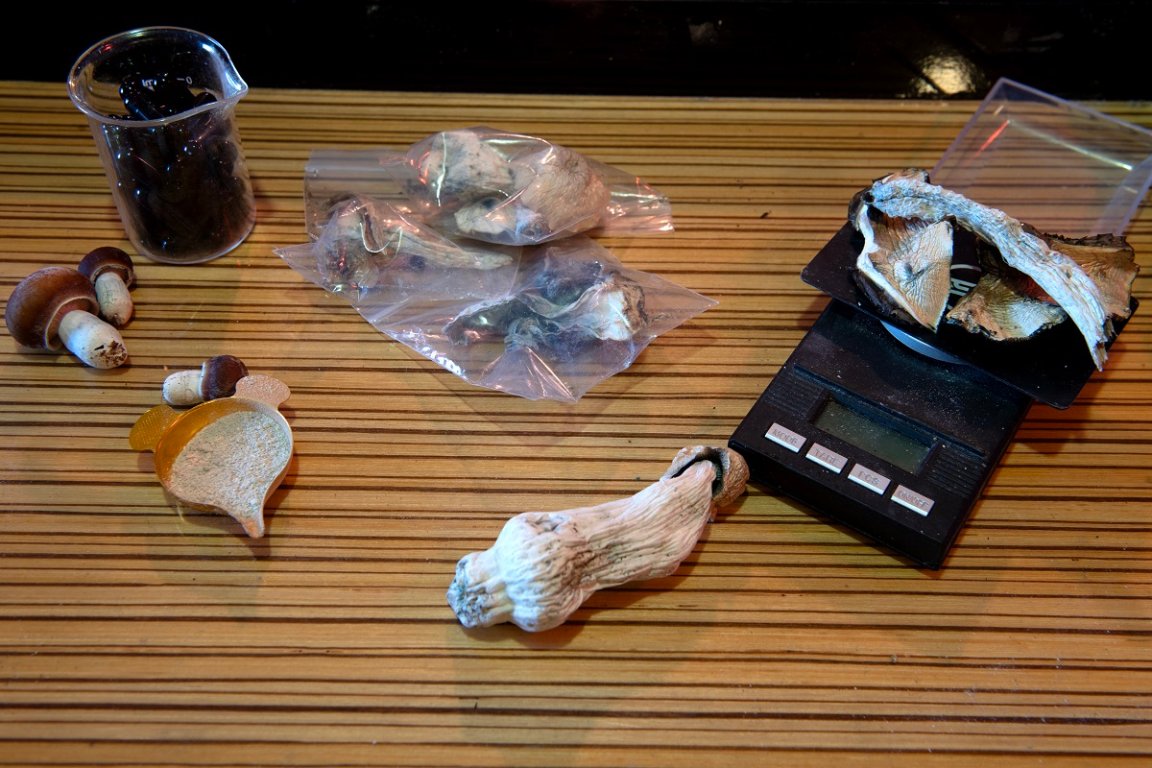
In a new study, scientists have uncovered evidence that magic mushrooms just might be an effective anti-aging treatment.
Published in the Nature Partnering Journal Aging, a new paper by researchers at Emory and Baylor’s medical schools suggests that psilocybin, the active compound in psychedelic mushrooms — there are a range of species that produce it, but the best known is probably Pisolocybe cubensis — might extend the lifespans of both mice and potentially humans.
The two-part study tested medium-sized doses of psilocybin on older mice, and later introduced similar amounts of the compound to human cells to see how it affected their telomeres, which shorten as organisms grow older and are viewed as a hallmark of aging.
In both the mice and the human cells — half of which were fetal lung cells, the other half from adult skin — the introduction of psilocybin was linked to preserved telomere length. In other words, the study appears to show that telomeres shortened more slowly after being given psilocybin than they would have without, and that mushrooms may increase cellular lifespan.
In addition to the telomere findings, the researchers also noted that the psilocybin-treated mice showed increased survival skills and had “improvements in overall fur quality,” which may suggest further anti-aging properties as well.
According to Louise Hecker, a Baylor medical and cardiovascular researcher and the senior author of the paper, she and her colleagues were compelled to look into the potential lifespan-enhancing effects of psilocybin because, for the most part, it hasn’t really been studied directly.
“The overwhelming majority of what we know about psilocybin is how it impacts the brain,” Hecker said in a press release about the study. “Our findings suggest that psilocybin has potent effects on the entire body, including antiaging properties, which also may contribute to the plethora of observed beneficial clinical outcomes.”
However, some previous research has suggested that psychedelic drugs could be linked to positive health outcomes. A study in 2021, for instance, found that people who used hallucinogenic drugs including psilocybin, LSD and mescaline had a lower risk of developing heart disease and diabetes. Some other studies suggest that people who have periodically used psychedelics recreationally are less likely to be overweight or obese.
While Hecker’s colleague and paper coauthor Kosuke Kato urged caution when establishing a causal link between shrooms and increased lifespan, he pointed to the results in the aged mice as perhaps the most important part of the research.
“This is a very exciting and clinically relevant finding that suggests that even when [psychedelic] intervention is initiated late in life, it can have dramatic impacts,” Kato said in the press release.
While there’s “still a lot to understand, including optimal dosing protocols that will lead to maximal efficacy,” Kato said that further study will hopefully help researchers and medical practitioners alike figure out how psilocybin treatment can work.
Hecker, meanwhile, enthused that her team’s findings “open an exciting new chapter in psychedelic research” — a field that’s already shown lots of promise in recent years when looking into the ways these drugs can help with mental illness and dementia.
“Psilocybin may represent a disruptive agent that promotes healthy aging,” she said. “The next steps need to explore the therapeutic effects across multiple age-related diseases.”
More on psychedelics: People Are Taking Massive Doses of Psychedelic Drugs and Using AI as a Tripsitter